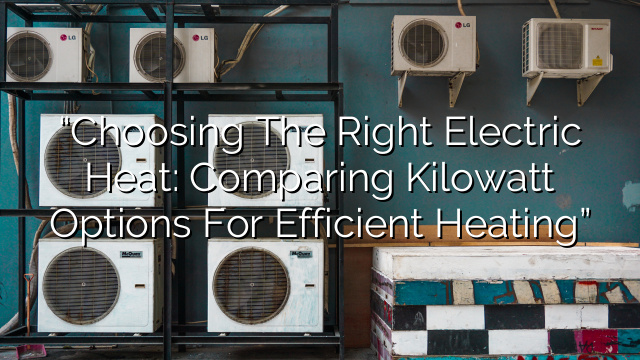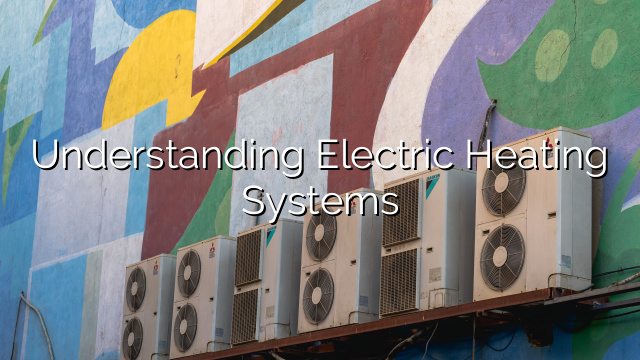Introduction
Electric heating has become increasingly popular in recent years as an alternative to gas heating. With advancements in technology and environmental awareness, many homeowners are considering electric heating for their homes. This blog post will explore the reasons why electric heating is a better option compared to traditional gas heating.
1. Energy Efficiency
Electric heating systems are more energy-efficient than gas heating systems. Gas heating involves burning fossil fuels, which results in some energy loss due to the inefficiency of combustion. In contrast, electric heating converts all the electricity it consumes into heat, making it 100% efficient. By choosing electric heating, homeowners can save on energy costs and reduce their carbon footprint.
2. Safety
Electric heating systems are generally considered safer than gas heating systems. With electric heating, there is no combustion or open flames involved, reducing the risk of fire hazards. Additionally, gas heating systems can emit carbon monoxide, a toxic gas, if not properly maintained. Electric heating does not produce any harmful emissions, ensuring the safety and well-being of the occupants.
3. Installation and Maintenance
Electric heating systems are easier to install and require less maintenance compared to gas heating systems. Electric heaters can be plugged in and used immediately, while gas heating systems require gas lines to be installed, which can be a complex and time-consuming process. Moreover, electric heating systems do not require annual maintenance checks or servicing, unlike gas heating systems.
4. Flexibility
Electric heating systems offer more flexibility compared to gas heating systems. With electric heating, it is possible to have individually controlled units in each room, allowing for zoned heating and personalized comfort. Gas heating systems often rely on a central heating system, resulting in less flexibility in terms of temperature control and zoning.
5. Environmental Impact
Electric heating systems are more environmentally friendly than gas heating systems. Gas heating contributes to greenhouse gas emissions, releasing carbon dioxide and other pollutants into the atmosphere. In contrast, electric heating relies on the generation of electricity, which can be sourced from renewable energy sources such as wind and solar power. By choosing electric heating, homeowners can reduce their carbon footprint and contribute to a greener future.
6. Noise Level
Another advantage of electric heating systems is their quiet operation. Gas heating systems often produce noise from the combustion process and the circulation of heated air. Electric heaters, on the other hand, operate quietly, making them ideal for bedrooms and areas where noise can be a concern.
7. Cost Effectiveness
While the initial cost of electric heating systems may be higher than gas heating systems, they can be more cost-effective in the long run. Electric heating systems have longer lifespans and lower maintenance costs. Additionally, the rising cost of natural gas can make electric heating a more affordable option, especially when combined with energy-efficient practices and renewable energy sources.
Conclusion
Electric heating is a superior choice compared to gas heating for several reasons. Its energy efficiency, safety, ease of installation and maintenance, flexibility, environmental impact, noise level, and cost-effectiveness make it an attractive option for homeowners. With the ever-increasing awareness of environmental issues and the need for sustainable solutions, electric heating is a step towards a greener and more sustainable future. Consider making the switch to electric heating and enjoy the benefits it has to offer.














